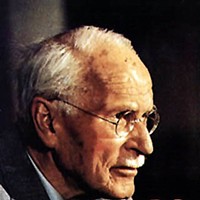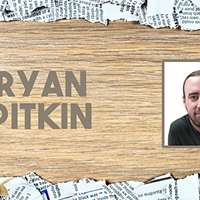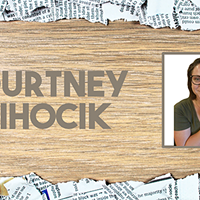Some of the most memorable works of fiction, to me, are stories that center on religion and spirituality. I've probably read Hermann Hesse's Siddhartha a handful of times since I was first introduced to it in high school, and one of my all-time favorite short novels is Wise Blood, Flannery O'Connor's haunting tale of a zealously puritanical atheist in the small town of Taulkinham, Tenn., who hawks an anti-religion religion to which he is so loyal that he ultimately blinds himself with lye.
I'm not alone in my obsession with stories that have crazy religious themes. Religion and spirituality fuel much of what we read, listen to or look at in libraries, concerts, theater productions, films and galleries. We humans can't get enough of it, even those who self-identify as atheists. (Heck, they probably think about religion more than anybody.) Two recent nonfiction books from wildly divergent perspectives — Matthew S. Hedstrom's The Rise of Liberal Religion: Book Culture and American Spirituality in the Twentieth Century and conservative New York Times op-ed writer Ross Douthat's Bad Religion: How We Became a Nation of Heretics — both suggest that religion-inspired literature is fundamental to a sustaining culture.
With that in mind — and since religion is a particularly thorny topic here in the buckle of the Bible Belt — we have chosen religion and spirituality as jumping-off points for Creative Loafing's Flash Fiction Contest 2013. If you are an aspiring fiction writer with thoughts or opinions on religion and spirituality in Charlotte, you're a prime candidate for this contest.
It's a relatively easy assignment. Here's the deal: All you have to do is write a piece of short fiction — from 300 to 1,000 words — on any aspect of religion or spirituality in Charlotte, then pay a $5 entry fee and submit your work to us by April 7.
You may center your stories on whatever you see as religion: Christianity, Judaism, Islam, Buddhism, Satanism, Unitarian Universalism, 12-step recovery, yoga, money ... anything. The only real rules are that the work must be Charlotte-centric, it must be fiction and it must be your work, not someone else's, not something you found on the Internet, not some obscure piece you read in a college anthology. If you use any of those, it's the religion of Plagiarism, and that's the only one that's unacceptable.
We're also not looking for personal essays, commentary or journalism — we want to see the most imaginative, creative pieces of pure fictional storytelling you can come up with.
What will you get out of this (other than the satisfaction of writing)? Glad you asked. If you win First Prize, you'll receive $200 and get your piece published in a May issue of Creative Loafing. We're still coming up with Second and Third prizes, but trust us, they'll be pretty sweet, too.
For more information, go to www.clclt.com/fictioncontest or email backtalk@creativeloafing.com.
Speaking of...
-

Faith and Spirituality Among Us All
Oct 22, 2020 -

Tao Te Ching : The Way : Lao Tzu, Alan Watts
Mar 22, 2020 -

Wine O'Clock — Visit the Coravin Wine Bar at the Charlotte Christmas Village
Dec 17, 2019 - More »
Latest in Editor's Notes
More by Mark Kemp
Calendar
-

Charlotte Wine & Food Week’s Annual Sake Dinner at Mizu @ Mizu
-

Hands On Cocktail Class Featuring Gin at DTR Southpark @ DTR SouthPark
-

Charlotte Wine + Food Week Presented by Truist @ Charlotte, NC
-
 Charlotte Knights vs. Syracuse Mets @ Charlotte Knights
Charlotte Knights vs. Syracuse Mets @ Charlotte Knights -

Wine & Paint @ Blackfinn Ameripub- Ballantyne
-
A Beginners Guide To Fishing 1
-
Question the Queen City: The historic Wearn House can still be saved 2
Though it's been on the chopping block for years, there's still hope for the historic structure.
-
10 best movie striptease scenes
Salma Hayek, Jessica Alba and more.















